The Mongolian composer and teacher Zhebo was – as we have reported – ordered to leave Germany by the end of the year. All Zhebo ever wanted from boyhood was to live and work in the shadow of J S Bach.
A week before Christmas, the immigration authorities have relented, granting him a three year renewable permit.
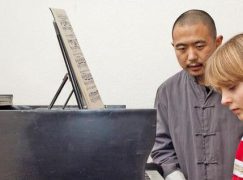
The universally loved pianist blew out his candles for us on Saturday night.
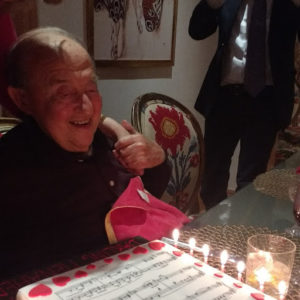
Sunday morning he sat down at the piano to learn a new quintet.
Simonetta Puccini, whose claim to be the composer’s illegitimate granddaughter was recognised after fierce legal battles, died yesterday at 89.
Simonetta Giurumello was the child of Puccini’s only son, Antonio, whose marriage was childless. Antonio died in 1946. His widow, Rita, who died in 1979, left the composer’s estate to her bachelor brother. His butler is alleged to have enriched himself on the proceeds.
Simonetta, on winning her case, took Puccini’s name and restored his home at Torre del Lago.
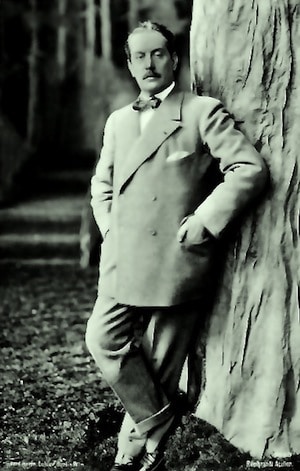
There are more twists to the inheritance saga, crying out for a good librettist.

Scenes from Hilde Zadek’s 100th birthday, opening a photographic celebration of her career in the foyer of the Vienna State Opera.
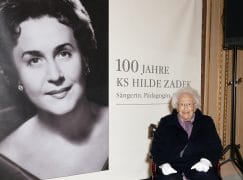
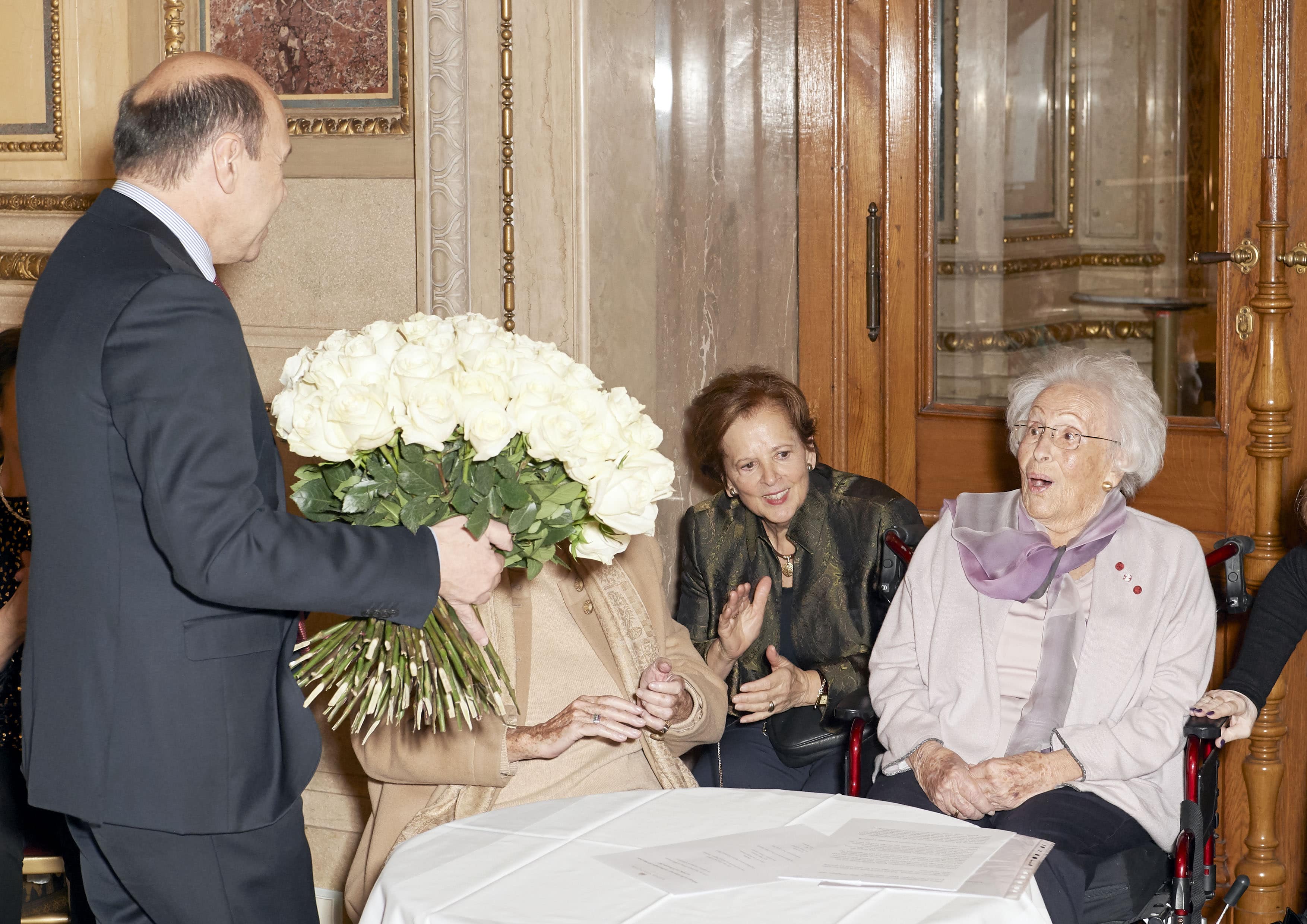
A bouquet from the boss, Dominique Meyer
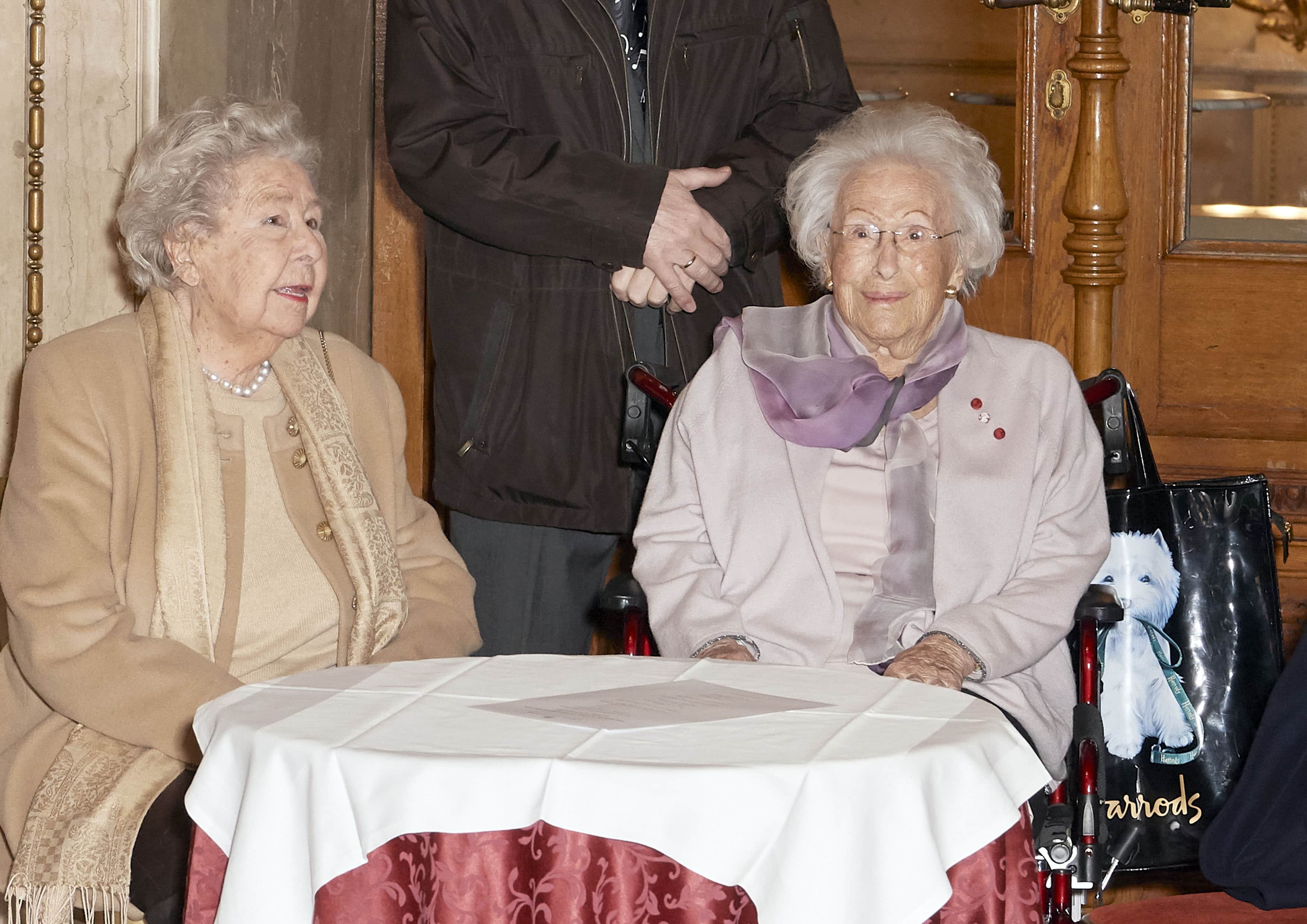
with best pal Christa Ludwig
photos: Michael Pöhn, Staatsoper
Hear Hilde sing here.
The US mezzo-soprano Cindy Sadler has published an important, extensive and far from comprehensive catalogue of commonplace abuses in classical music and opera.
Two years ago, Cindy collected testimonies of sexual harassment and assault for a report to AGMA, the American Guild of Musical Artists. It is not clear whether the report was ever published, but certainly nothing changed – as evidenced by the spate of allegations about James Levine and sundry others..
Some of the stories she recounts are chilling in their sheer familiarity.
Here’s one:
‘My anger, even to this day when I think about it, never really centered on him. It was my colleagues and the staff that made me both livid and hurt. I couldn’t believe no one in the room said anything or helped me. I was surrounded by people but completely alone. Everyone knew it was wrong. There were at least six other people in the rehearsal besides the two of us, and no one said a thing.
‘I never reported him. It seemed obvious that this was just how he behaved, and everyone knew it. He was a big star, and I was just another young soprano.’
Read on here.
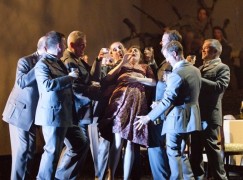
Rape scene from William Tell, Covent Garden. photo: ROH
The Spanish newspaper El Pais reports that 40 members of El Sistema’s flgaship orchestra have fled the country. Its conductor Gustavo Dudamel no longer dares to return to Venezuela.
Report here.
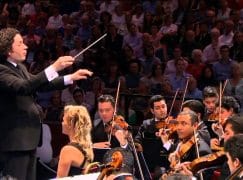
It’s the finals of the Cadaques competition in Barcelona.
The quarter-finalists are:
Dominic Grier (UK)
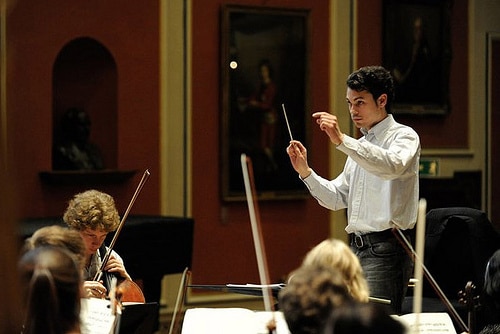
Kaapo Ijas (Finland)
Felix Mildenberger (Germany)
Wilson Ng (China)
Jaume-Blai Santonja Espinós (Spain)
Sergey Simakov (Russia)
Nuno Coelho (Portugal)
The jury: Gianandrea Noseda (chair; 1994 winner); Annette Mangold (artistic planner, Berlin Philharmonic), Nicholas Kenyon (MD, Barbican Centre), Lutz Köhler, Jaime Martín (conductors), Jun-ichi Nihei (Japan Arts Corporation), and the Cadaqués Orchestra.
UPDATE: The semi-finalists are Felix Midenberger, Sergey Simakov and Nuno Coelho.
The New York Post has come up with a claim of sexual molestation by a visiting assistant conductor against Joseph Colaneri, a veteran member of the Metropolitan Opera conducting staff (see Update below).
The anonymous complainant alleges that in 2001, when she was 25, Colaneri exposed himself and made her touch his penis as they sat in the opera house in San Francisco watching a performance of La Traviata.
Colaneri, now 62, has been on staff at the Met since 1988. He is also music director at the Glimmerglass Festival.
There is no corroboration available for the Post report here.

UPDATE: Doubts are cast on New York Post allegations
McNally Smith College of Music will shut down this week after failing to meet the payroll.
The school is in St Paul, Minnesota. Its chairman said: ‘As you all know, in the past few years higher education has been in an unprecedented decline the like of which has never been seen.’

Keith Cerny has resigned as general director and CEO of Dallas Opera with immediate effect.
He will start next month in the same post at Calgary Opera, which is much smaller.
No reason has been given.
Cerny has put in seven and a half years at Dallas, raising its profile significantly with a program for training women conductors. He appointed both the present music director Emmanuel Villaume and the principal guest conductor Nicole Paiement,

An unsung feat of cultural diplomacy has won a future for an Iranian pianist.
From the press release:
Ashkan Layegh, winner of the 2017 Barbad International Piano Prize in Shiraz, has won a full scholarship to study piano and composition at the Royal Academy of Music in London. He has also been offered a place at the Royal College of Music, a remarkable double achievement.
Ashkan is probably the first young Iranian musician born in Iran ever to have achieved this distinction. Over 100 pianists from all over the world auditioned for the Royal Academy and Royal College of Music this December. Only a few truly exceptional young musicians are awarded scholarships.

Colleagues have alerted us to a (fairly) new site on which the veteran US critic Conrad L. Osborne writes forensic reviews of current operas.
Conrad is now 83 so he’s not out every night at the opera, but his take on The Exterminating Angel, for instance, is the least manipulated and the most quietly objective of any that I have read.
And his justification for opera reviews online is spot-on.

Just read him:
And for opera, this is a critical time. Refusal to acknowledge that, a sort of denial by default, is criticism’s greatest failure now. Critics do greater harm through misplaced praise or through indifference, an indolent passing along, than with any considered censure. Opera’s present crisis has two principal components, artistically speaking. (There is also an economic crisis, a crisis of public acceptance. I’ll come to that down the road. For now, let’s stipulate only that these two crises cannot be unrelated.) The first component is creative: not enough new works are proving capable of standing with the masterworks of the classical repertory. This has been the case for a long time. The second is interpretive: the aforesaid masterworks are being inadequately presented, often to the point of being unrecognizable, and so cannot exert their magnetic hold on audiences.
Both components will receive attention here…















